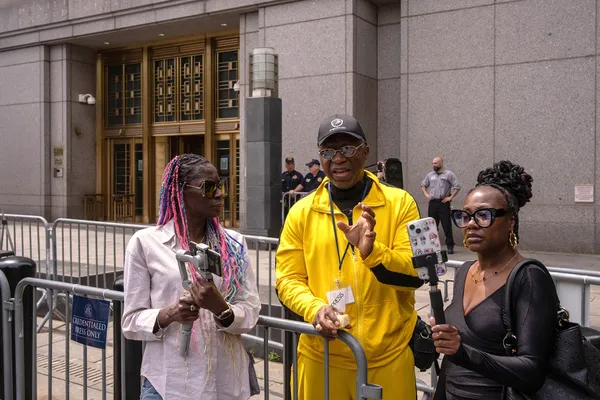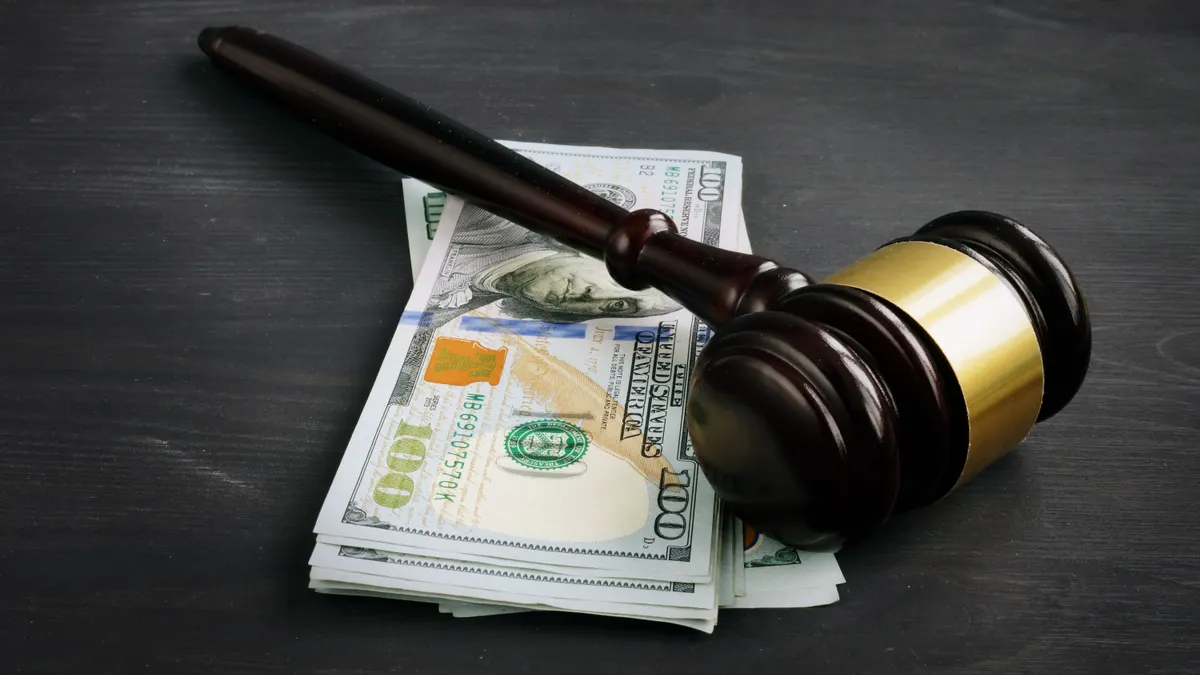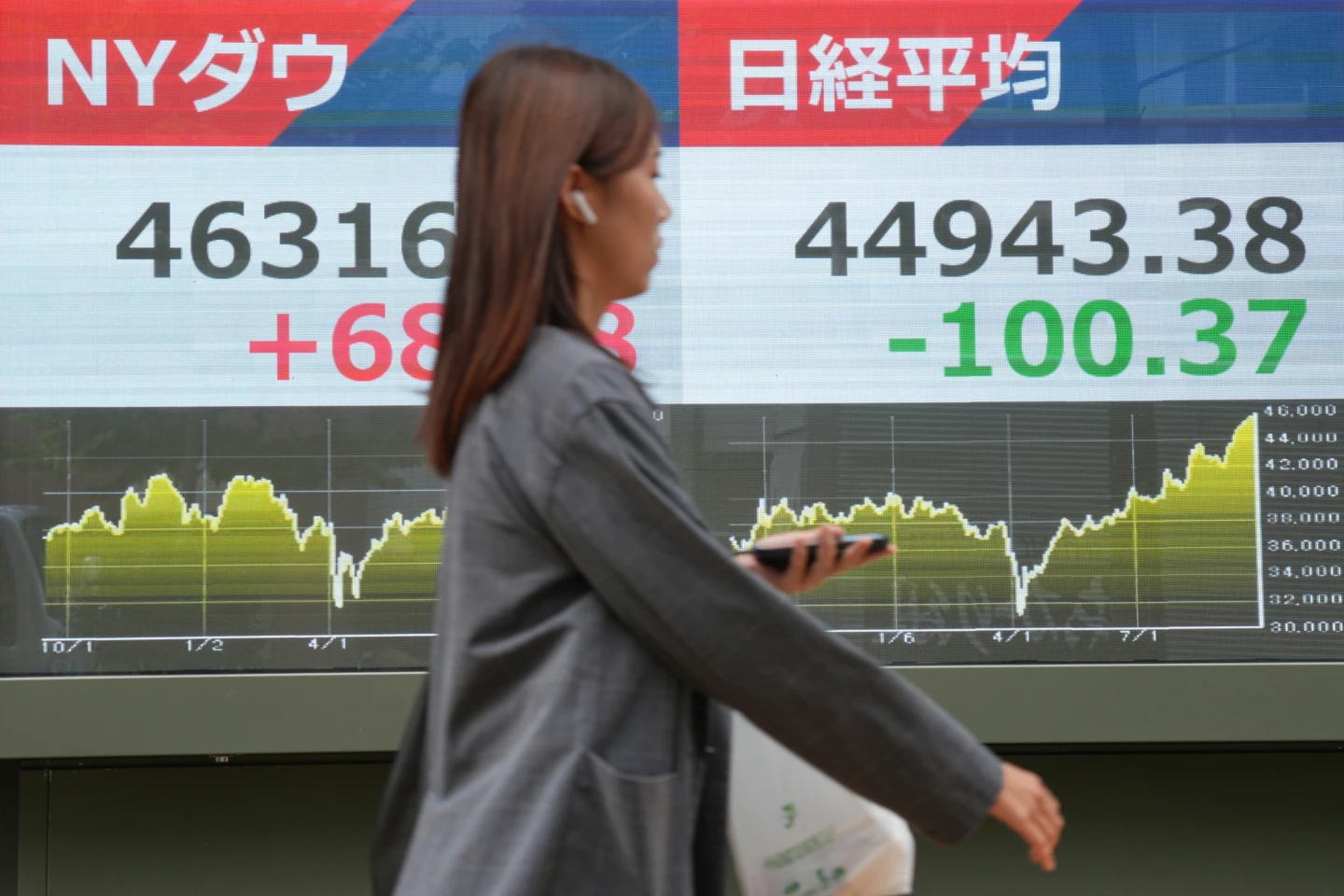Combs and Mangione Trials Spark Rise of Courtroom TikTok Influencers
High-profile legal battles involving Sean 'Diddy' Combs and Anthony Mangione have fueled a surge of TikTok creators blending law, drama, and commentary—forming a new class of social media influencers with courtroom credibility and viral clout.
As legal drama unfolds in high-profile cases involving Sean 'Diddy' Combs and former Homeland Security official Anthony Mangione, an unexpected phenomenon is reshaping the world of social media: the rise of the courtroom TikTok influencer. These creators—often law students, attorneys, or just highly engaged viewers—are racking up millions of views by posting real-time updates, legal analysis, and opinion-laced breakdowns of ongoing trials, creating a potent new genre of legal infotainment. This shift reflects a broader evolution in how audiences consume court cases.
Traditional legal journalism is now being reinterpreted and disseminated by Gen Z content creators who combine fast-paced editing, visual storytelling, and personal branding. The result? Legal proceedings are no longer confined to newspapers or cable news—they’re trending on TikTok. ### Trials That Captured TikTokThe cases of Combs and Mangione are vastly different in scope and substance, but both have become cultural flashpoints:- Sean 'Diddy' Combs, the music mogul, faces a series of civil lawsuits involving sexual misconduct, workplace harassment, and abuse allegations.
The sensational nature of the claims and Combs’ decades-long celebrity status have created a media storm. - Anthony Mangione, once the chief of Immigration and Customs Enforcement in South Florida, is facing renewed public scrutiny after a series of federal indictments resurfaced regarding possession of child exploitation material. The case raises serious questions about abuse of power, hypocrisy in law enforcement, and justice system oversight.
Each trial has provided a fertile narrative landscape for TikTok creators to unpack legal documents, react to courtroom footage, and speculate on outcomes—all while building loyal followings. ### The Anatomy of a Legal InfluencerTikTok’s legal influencers come in many forms, but most share common traits: - A charismatic delivery style that blends facts with storytelling. - Simplified legal explanations using layman’s terms.
- Rapid turnaround content that reacts to daily trial developments. - Use of on-screen captions, split-screen reactions, and viral audio trends. Popular creators include: - @JusticeJules, a second-year law student whose annotated readings of court filings have garnered over 2 million followers.
- @TheTrialDoc, a retired prosecutor who analyzes trial strategy using green screen overlays. - @HotGavel, known for dramatic reenactments of witness testimonies. These influencers are building brands not just on commentary, but on authority, relatability, and trust—qualities that set them apart in a crowded influencer market.
### Legal Literacy or Legal Theater?The rise of courtroom content on TikTok has drawn both praise and criticism. Supporters argue that this trend is democratizing legal knowledge, making complex court proceedings accessible to younger, previously disengaged audiences. Viewers are learning how the justice system works, how lawyers argue, and how bias and privilege manifest in real time.
Critics, however, warn that the line between information and entertainment is being blurred: - Creators may prioritize clicks over accuracy. - Emotional storytelling can eclipse legal nuance. - Selective editing may create misleading impressions.
“People are forming opinions about defendants before the jury does,” said Rachel Feinberg, a media ethics professor at UCLA. “It’s courtroom voyeurism under the guise of civic education. ”### Monetizing the CourtroomMany legal TikTokers are now monetizing their coverage.
Through brand partnerships, affiliate links, Patreon subscriptions, and even merchandise, influencers are turning gavel content into gold. For example: - @TrialWatchQueen recently signed a six-figure sponsorship deal with a legal software company. - Others have landed book deals or podcast contracts based on their TikTok personas.
Some lawyers have also parlayed their social media presence into real-world business. Legal firms are recruiting influencer-lawyers to humanize their practice, generate client leads, or raise awareness on niche areas like wrongful convictions or family law. ### Ethical Concerns and Gray ZonesThis monetization, however, introduces serious ethical dilemmas: - Are influencers capitalizing on human tragedy? - Could viral coverage affect jury impartiality or witness behavior? - What responsibility do creators have in verifying the authenticity of legal documents they share?In some jurisdictions, courts have already begun restricting livestream access or issuing gag orders specifically to curb misinformation spread via social media.
TikTok itself has also faced pressure to implement better moderation tools for legal content, particularly in cases involving minors, sensitive crimes, or unverified accusations. ### From True Crime to Real-Time TrialsThe courtroom TikTok phenomenon builds on the public’s long-standing obsession with true crime and high-profile trials—think O. J.
Simpson, Casey Anthony, Johnny Depp vs. Amber Heard. But TikTok adds a twist: speed and participation.
Audiences aren’t just watching trials — they’re commenting, stitching, dueting, and reacting in real time, creating a digital town square of armchair jurors and amateur analysts. “This is the first generation raised on Court TV that now has their own platform,” said Megan Rivers, a criminal justice journalist. “The courtroom is content.
Trials are theater. And TikTok is the stage. ”### Legal Professionals Join InInterestingly, some judges, lawyers, and court reporters are embracing TikTok as a communication tool.
They see it as a way to: - Correct misinformation in real time. - Educate the public on legal rights. - Demystify the court process, especially for marginalized communities.
One viral creator, @YourFriendlyJD, posts videos on how to respond to subpoenas, navigate small claims court, and understand plea deals. In response to the Combs and Mangione cases, several legal professionals have also taken to TikTok to explain: - The difference between civil and criminal cases. - How deposition testimony works.
- The burden of proof in misconduct claims. ### The Future of Law as ContentAs trials become trending topics, the relationship between justice and media is being redefined. Influencers are filling a vacuum left by shrinking newsroom legal desks.
But they’re also creating narratives with powerful reach and consequence. Going forward, we may see: - Courtroom access rules rewritten to address the influence of social media. - Academic courses on digital legal commentary.
- Licensing debates over who gets to 'practice' legal explanation online. “TikTok is the new C-SPAN, but faster, snarkier, and with filters,” joked media analyst Sean Patel. “But it raises real questions about who owns the narrative of justice in the digital age.
”### Conclusion: Verdict Still PendingThe Combs and Mangione trials may ultimately be remembered not just for their verdicts, but for their role in ushering in a new era of participatory, viral legal media. As influencers break down testimony, dissect cross-examinations, and hold court online, one thing is clear: the courtroom has gone digital, and TikTok’s gavel is louder than ever.
24th july 2025



